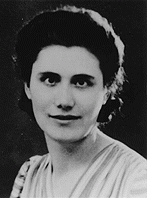You searched for: 3粉大咖引戰【TG飞机:@bapingseo】谷歌seo免费工具【TG电报:@bapingseo】南亚国外灰产【Telegram:@bapingseo】22年世界杯e乐彩线路检测路径?6tE47E/832327.html
<< Previous | Displaying results 576-600 of 684 for "3粉大咖引戰【TG飞机:@bapingseo】谷歌seo免费工具【TG电报:@bapingseo】南亚国外灰产【Telegram:@bapingseo】22年世界杯e乐彩线路检测路径?6tE47E/832327.html" | Next >>
-
Book Burning
ArticleBook burning is the ritual destruction by fire of books or other written materials. The Nazi burning of books in May 1933 is perhaps the most famous in history. Learn more.
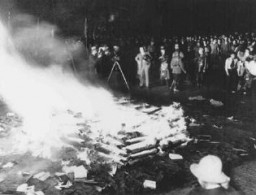
-
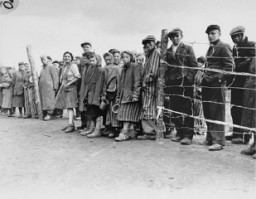
-
Bergen-Belsen In Depth: The Camp Complex
ArticleLearn about the sections of the Bergen-Belsen camp complex during WWII and the Holocaust until the camp's liberation by British forces in April 1945.
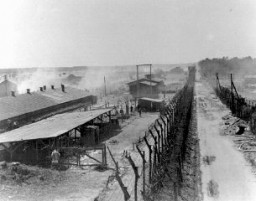
-
Tattoos and Numbers: The System of Identifying Prisoners at Auschwitz
ArticleLearn more about how the Nazis identified and tattooed prisoners at the Auschwitz concentration camp complex.
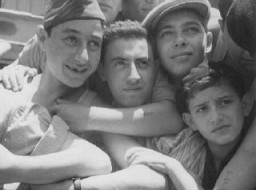
-
Buchenwald
ArticleThe Nazi regime established the Buchenwald camp in 1937. Learn about the camp’s prisoners, conditions there, forced labor, subcamps, medical experiments, and liberation.
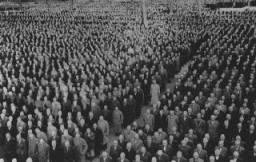
-
Esterwegen Concentration Camp
ArticleEsterwegen was part of the Nazi regime’s early system of concentration camps, created to hold people arrested as opponents of the new regime.
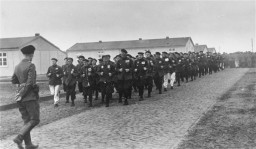
-
Polish hostages arrested during the "pacification" of Bydgoszcz
PhotoPolish hostages in the Old Market Square. Bydgoszcz, Poland, September 9–10, 1939. Just after the German invasion of Poland, armed groups of ethnic Germans in the city of Bydgoszcz staged an uprising against the local Polish garrison. This was put down by the next day, one day prior to the entrance of German troops in the city on September 5. A local command structure was quickly put into place by Major General Walter Braemer, and in response to continued attacks upon German personnel in the city,…
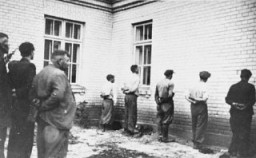
-
D-Day
Timeline EventJune 6, 1944. On this date, US, British, and Canadian troops land on the beaches of Normandy, France.
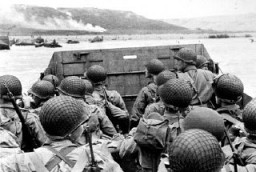
-
Simone Weil
ID CardSimone was the oldest of two children born to a Jewish family in the small village of Ringendorf. When she was 3 her family moved to Strasbourg. Her father made his living breeding sheep. Simone and her younger brother were both active in a Jewish scouting organization, Les Eclaireurs Israelites de France (EIF). Simone attended a public secondary school in Strasbourg. 1933-39: In addition to attending secondary school for five days of the week, Simone also went to a Jewish religious school on the other…
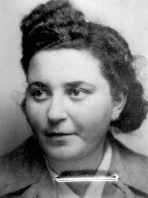
-
Welek Luksenburg
ID CardWelek grew up in Dabrowa Gornicza, an industrial town in western Poland. His father, Simcha, was a wholesale meat merchant and his mother, Rozalia, served as president of the local chapter of the Women's International Zionist Organization. Welek's older brother, Szlomo, was a dentist. The Luksenburgs were among the several thousand Jews who lived in Dabrowa Gornicza. 1933–39: Like many other children in the town, Welek attended public school. Because his family was very religious, he did not attend…
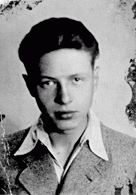
-
Abraham Bergman
ID CardAbraham was born to a Jewish family in Krasnik, a town in the Lublin district of Poland. The town had a large Jewish population. Abraham's father was a tailor. When Abraham was 2, his mother died and he was raised by his grandmother. At the age of 7, Abraham started public school. 1933-39: Abraham liked school but found it difficult. The Christian children often yelled at the Jews, "You killed our God." One year, on the day before Christmas break, some kids brought ropes tied to iron weights to school.…
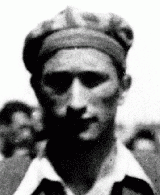
-
Fischel (Philip) Goldstein
ID CardFischel was the youngest of five children. He came from a Jewish family of artisans; his father was a tailor, his uncles were furriers, and his sister was a dressmaker. Fischel started his education at a Jewish parochial school at age 3, where he studied Hebrew and Yiddish. He continued his education at Jewish private schools until age 10, when he entered Polish public schools. 1933-39: After graduating from the Polish public school system at age 14, Fischel started an apprenticeship in his father's…
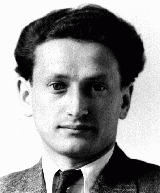
-
Judith Kalman
ID CardJudith was the only child born to a Jewish couple who lived in Hatvan, a small town 36 miles northeast of Budapest. Judith's father worked in his brother's business, marketing grains and other agricultural products purchased from local farms. When she was 3, Judith gave her first public recitation of poetry, an interest that she pursued throughout her childhood. 1933-39: Judith's family wasn't religious--they were Hungarians who happened to be Jewish, and their family was well-liked in Hatvan. But in the…
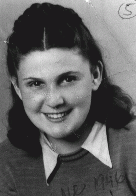
-
Pawel Zenon Wos
ID CardPawel was the oldest of four children born to Roman Catholic parents in Poland's capital of Warsaw. Pawel's father had worked for the Polish merchant marine before starting his own textile business in 1930. The family moved to a comfortable apartment near the Royal Castle and the Vistula River. Pawel excelled in sports, including basketball and tennis. His favorite sport was rowing. 1933-39: In May 1939 Pawel became an army reserve officer and went to training camp near Augustow. On the morning of…
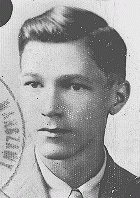
-
Walther Hamann
ID CardWalther was born in the state of Thuringia in east central Germany. Though his parents were Lutheran, Walther became a Jehovah's Witness in 1923. After becoming a master baker and confectioner in 1924, Walther worked in various coffeehouses in Plauen, Magdeburg and Duesseldorf. In 1928 he graduated from a professional school. He married and had two sons. 1933-39: In 1933 Walther became a pastry-making manager at the Cafe Weitz on Duesseldorf's Koenigsallee. The Gestapo arrested him at the cafe in 1937…
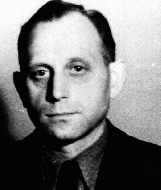
-
Marcus Fass
ID CardMarcus, known to his family as Moniek, was one of three children born to a Jewish family in the Polish town of Ulanow. His father worked as a tailor. Ulanow's Jewish community had many of its own organizations and maintained a large library. From the age of 3, Moniek attended a religious school. He started public school when he was 7. 1933-39: In 1935 Moniek's father left for America to find a job so that his family could later join him. He sent money to them while they waited for their emigration papers.…
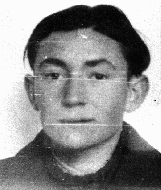
-
Selma Wijnberg
ID CardSelma was the youngest of the Wijnberg's four children, and the only daughter. When she was 7, her family left Groningen to start a business in the town of Zwolle [in the Netherlands]. There her parents ran a small hotel popular with Jewish businessmen traveling in the area. Every Friday there was a cattle market, and many of the cattle dealers came to the Wijnberg's hotel for coffee and business. 1933-39: At home Selma and her family were observant of Jewish tradition because her mother was religious.…
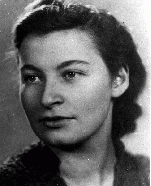
-
Zigmond Adler
ID CardZigmond's parents were Czechoslovakian Jews who had emigrated to Belgium. His mother, Rivka, was a shirtmaker. She had come to Belgium as a young woman to find a steady job, following her older brother, Jermie, who had moved his family to Liege several years earlier. In Liege, Rivka met and married Otto Adler, a businessman. The couple looked forward to raising a family. 1933-39: Zigmond was born to the Adlers in 1936, but his mother died one year later. His father remarried, but the marriage didn't last.…
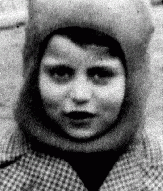
-
Henoch Kornfeld
ID CardHenoch's religious Jewish parents married in 1937. His father, Moishe Kornfeld, and his mother, Liba Saleschutz, had settled in Kolbuszowa, where Henoch's mother was raised. There, Liba's father bought the newlyweds a home and started his new son-in-law in the wholesale textile business. 1938-39: Henoch was born in late 1938, and was raised among many aunts, uncles and cousins. Around Henoch's first birthday, Germany invaded Poland and soon reached Kolbuszowa. Polish soldiers on horses tried to fight…
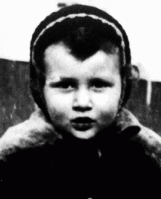
-
Claude J. Letulle
ID CardOne of five children, Claude grew up in a Catholic family in Paris. His father, a physician, owned a prosperous general medicine practice and medical laboratory. Claude's father encouraged him to study medicine and to join his practice, but Claude was more interested in becoming a lawyer. 1933-39: Claude continued his studies, and in 1936 he entered the university to study law. By mid-1939, Germany's threat against France had escalated, and on September 3, 1939, France declared war on Germany. Claude knew…
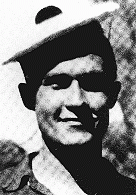
-
Ben Stern
ID CardBen was born to Jewish parents in Warsaw. When Ben was 7, his family moved to Mogielnica, about 40 miles from Warsaw. Ben's father spent much of his time studying religious texts. His wife managed the family liquor store. Ben attended public school during the day and was tutored in religious studies in the evening. 1933-39: After attending school in Warsaw, Ben returned home to help in the family's liquor store. One day, there was a mass demonstration in town. People chanted, "Don't buy from the Jews!"…
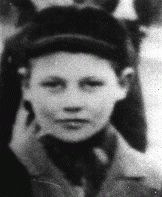
-
Isadore Frenkiel
ID CardIsadore and his wife, Sossia, had seven sons. The Frenkiels, a religious Jewish family, lived in a one-room apartment in a town near Warsaw called Gabin. Like most Jewish families in Gabin, they lived in the town's center, near the synagogue. Isadore was a self-employed cap maker, selling his caps at the town's weekly market. He also fashioned caps for the police and military. 1933-39: Isadore felt the pinch of the Depression, but although business was poor, he was able to provide for his family. Shortly…
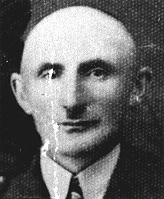
-
Sossia Frenkiel
ID CardSossia and her husband, Isadore, were the parents of seven boys. The Frenkiels, a religious Jewish family, lived in a one-room apartment in a town near Warsaw called Gabin. Like most Jewish families in Gabin, they lived near the synagogue. Sossia cared for the children while Isadore worked as a self-employed cap maker, selling his caps at the town's weekly market. 1933-39: Because of the Depression, Isadore's business had fallen off, but the Frenkiels managed to continue providing for their family.…
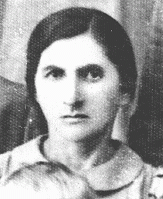
-
Siegfried Wohlfarth
ID CardThe elder of two sons of religious German-Jewish parents, Siegfried grew up in the city of Frankfurt. Upon completing his education, he became a certified public accountant in Frankfurt. In his free time he worked as a freelance music critic. While on a vacation in 1932 on the North Sea island of Norderney, he met Herta Katz, a young woman with whom he quickly fell in love. 1933-39: The Nazis had fired Siegfried from his government job because he was Jewish. Although his mother opposed the match,…
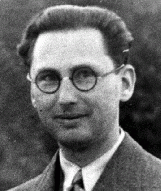
-
Gabrielle Weidner
ID CardGabrielle was the second of four children born to Dutch parents. Her father was a minister in the Seventh-Day Adventist Church. She grew up in Collonges, France, near the Swiss border, where her father served as a pastor. Gabrielle was baptized in the Seventh-Day Adventist faith at the age of 16. She attended secondary school in London, England. 1933-39: Gabrielle became increasingly active in the Seventh-Day Adventist Church, eventually becoming the secretary at the French-Belgian Union of Seventh-Day…
